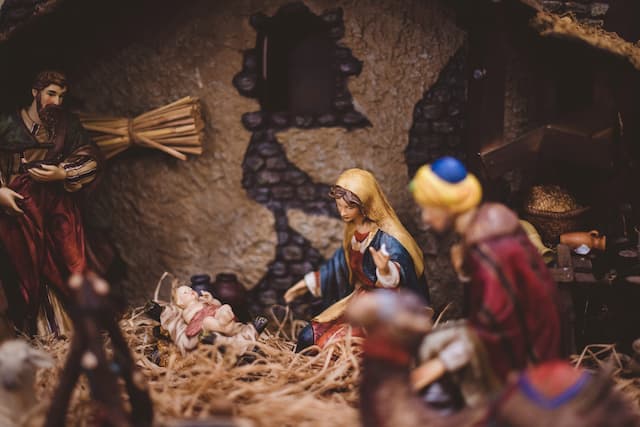33rd Sunday in Ordinary Time: What is a Good Life?

We are not just born to live but to live a good life. The good life is a central question of many philosophers since time immemorial. One of the earliest philosophers that contributed to the argument of the good life and how to achieve it was Aristotle. Aristotle pointed out that the good life is one which flourishes and which individuals live well.
Not just philosophers, though. At one point or another, we have asked this question. We need to answer this question while we are still alive lest we die without having truly lived.
Today’s readings of the 33rd Sunday in ordinary time address this question.
The First Reading gives us an image of a good life. It is a life that is diligent and industrious as a loyal and faithful wife. A perfect wife, Proverbs says, “is far beyond the price of pearls”. She is hardworking, mainly for her family, but she also “holds out her hand to the poor, she opens her arms to the needy”. Her value is not in her charm or her beauty but in her wisdom, that is, in her awareness of where the real priorities in life lie. A life well lived is a life dedicated to your family and those in need.
In the Second Reading, St. Paul describes a good life as a life that is alert, alive and always ready. He reminds us that the Day of the Lord will come “like a thief in the night”, when we least expect it, when we are least ready. “We do not belong to the night or to darkness, so we should not go on sleeping, as everyone else does, but stay wide awake and sober.” A life well lived is a well spent life always responding to the living and dynamic presence of Christ daily in our midst.
The Gospel passage goes further in describing a goodlife by highlighting the reality that our lives are worthy not just in the end but even from the very beginning. From the very beginning, God has blessed us with so much—the world, natural resources, our fellow human beings and has given us so much talents.
Jesus in the parable of the talents told the story of an employer entrusting his property called talents to each of three servants to administer while he is away. Literally, one talent was a very large sum of money, equivalent to thousands of dollars today. Naturally, the employer expects that when he returns, his talents has grown out of the resourcefulness of the servants.
The first two, of whom one received five talents and one received two talents, traded with what they had been given and doubled their capital. The third, however, the one who received the least, “went off and dug a hole in the ground and hid his master’s money”.
The parable gives us many important lessons about the good life.
First, God has entrusted us more than we perhaps trust ourselves. He entrusts to us a lot of potentials not only to become the persons and Christians he has called us to be, but also to build up the Church and God’s Kingdom. We are worthy even from the very beginning.
Second, talents are God given, it is not earned nor owned by us. Life’s worthiness comes from the realization about the giftedness of our lives. A life worth living cannot afford to be self-satisfied about our achievements. The realization that talents are gifts from God means that talents needs to be cheerfully shared to others. Freely received, freely give.
Third, with the lavish talents God has bestowed upon each of us, we cannot afford to be lazy and stagnant. Our talents are bursting with life that it cannot be stopped from being shared and utilized. It is disheartening when we hear of people whose talents are wasted either by sitting idle or being stuck in destructive habits. Just like the third servant in the parable, sometimes, we too are scared to take the risk of putting our talents on the line. We faithfully go to mass every Sunday but fail to invest it in the goodness of people, in forgiveness when we have been wronged, in speaking out for those who have no voice, in affection that may not be answered.
Finally, the measure of the worthiness of our lives is the measure of how we were able to multiply and expand our talents in service to others. In the end, God will deem us worthy if we have led a productive life wherein our talents were put to good use in serving others.
A good life is not about what we have accumulated, what we have received, what status we have reached nor how many pleasures we have enjoyed. A life worth living is not a life of wealth, power and fame. Life’s worthiness does not come from the cheers of this world but from God’s abundant blessings and talents which God has bestowed upon each one of us. Life’s worthiness comes from the generous and cheerful sharing of our God-given talents.
In the eucharist, we join our lives and our efforts to share our talents with the one who gave us the greatest example of giving all of his talents for others—our Lord Jesus Christ. Like Jesus Christ may we live to the fullest by being fully human and fully alive, utilizing and sharing our talents for our family, others and God.
I am passionate about the intersection between new media and technology. I continue to research and apply new media in theology and vice-versa. I am also a fan of Our Mother of Perpetual Help and her continuing relevance in today’s digital world.
View all posts by Baclaran Phenomenon







